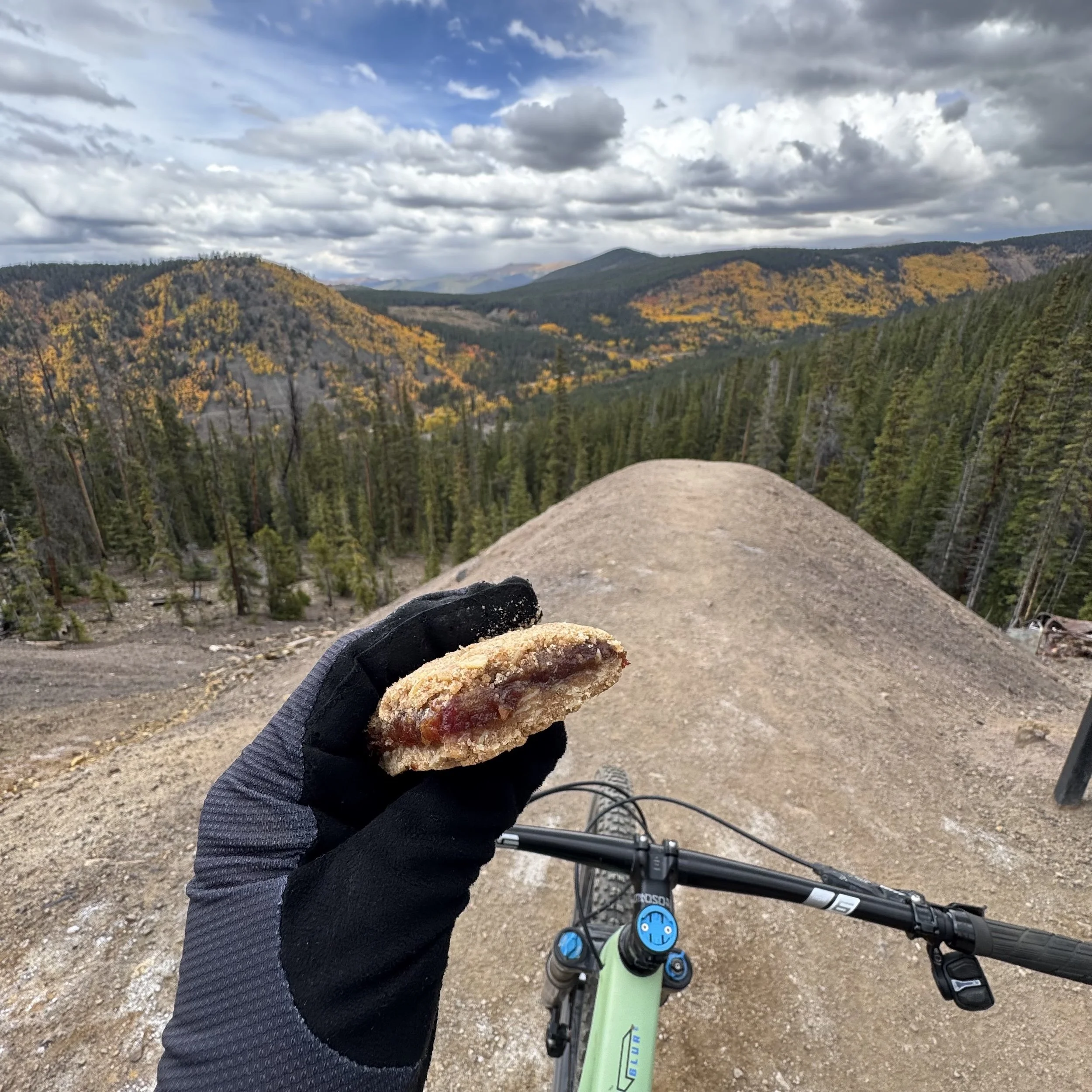Nutrition Essentials for Cyclists: 7 Key Concepts
Date Sandwich Bars - Recipe featured in the Bakin’ Biker’s Club
How you fuel impacts every ride—whether you’re climbing, chasing miles, or spinning for fun. Good nutrition boosts endurance, speeds recovery, and keeps you healthy. The key? Keep it simple, fuel consistently, and match your energy needs to your training. Here are 7 key concepts every cyclist should understand to support both training and everyday well-being.
1. Energy and Metabolism
Food is broken down into adenosine triphosphate (ATP), the energy your muscles use to pedal, climb, and sprint. Because your body can only store a small amount of ATP at a time, it relies on a steady supply of fuel from carbohydrates, fats, and protein to keep your engine running efficiently during every ride.
2. Calories = Energy
Calories are the measure of energy in the food you eat, and they power both your rides and your everyday life. Carbohydrates, protein, and fat all provide calories that your body converts into ATP. Eating ENOUGH to match your training is essential. Undereating can lead to fatigue, poor recovery, and long-term health issues.
3. Macronutrients and Micronutrients
Macronutrients are nutrients your body needs in large amounts to produce energy and support function:
Macronutrients
Carbs: Main fuel source for riding at high intensity and long durations.
Protein: Builds and repairs muscle, supports recovery and immune function, but isn’t an efficient energy source.
Fat: Long-lasting energy at low intensity.
Micronutrients: Vitamins and minerals that support energy production, recovery, and overall health. Get them from a well-balanced, varied diet full of colorful, whole foods.
4. Protein
Supports recovery, muscle repair, and adaptation. Endurance cyclists typically need 1.4-1.8g of protein per kg of body weight daily, but new research by Witard et al. (2025), suggests aiming toward the higher end, around 1.8g per kg, and even up to 2.0g per kg, especially during heavy training periods, stage races, or back-to-back long rides. A practical strategy is to spread intake across the day, aiming for 20-30g of protein at each meal and in the immediate recovery window after exercise.
5. Carbohydrates
Your body’s and brain's primary fuel source, especially at moderate to high intensities. Carb stores are limited, which is why you must constantly replenish them before, during, and after rides.
Daily: eat 5-7 g/kg body weight on moderate training days, up to 7-12 g/kg during heavy training blocks.
During rides
Low-intensity rides (1-3 hours): 40-60g carbs per hour (optional for shorter rides <60 min)
Moderate to high-intensity rides (1-3 hours): 60-90g carbs per hour
Rides of any intensity (>3 hours): 60-90g carbs per hour, push up to ~90g
Post-ride: eat 1-1.2g of carbs per kg of body weight within the first 30-60 minutes after finishing.
Tip: Carbs = high-speed, low-storage energy.
6. Fat
Supports endurance, hormone balance, and helps absorb vitamins (A, D, E, K). Fat provides almost endless energy at low intensity, but burns too slowly for hard efforts. Aim for 20-35% (≈1–1.5 g/kg bodyweight) of daily calories from healthy fats (nuts, seeds, avocado, olive oil). Fat = low-speed, high-storage energy.
7. Carbs Are King!
At moderate to higher intensities, carbs are your fastest, most efficient fuel source. Since carb storage is limited, you need to eat a lot before, during, and after rides to maintain optimal performance.
Daily Macronutrient Targets for Endurance Cycling
*This chart provides general guidelines based on current sports nutrition best practices. Individual needs may vary depending on factors such as body size, training intensity, metabolic rate, and personal tolerance.
For a 155 lb (≈70 kg) rider on a moderate training day:
Carbohydrates: 5-7g per kg × 70kg → 350-490g
Protein: 1.4-1.8g per kg × 70kg → 98-126g
Fat: ~1-1.5g per kg × 70kg → 70-105g
Based on grams per kg of bodyweight*
Join The Bakin’ Biker’s Club
Join a community of cyclists who love real food, simple nutrition, and recipes designed to keep you performing on every ride — while also giving back to the next generation of riders.



